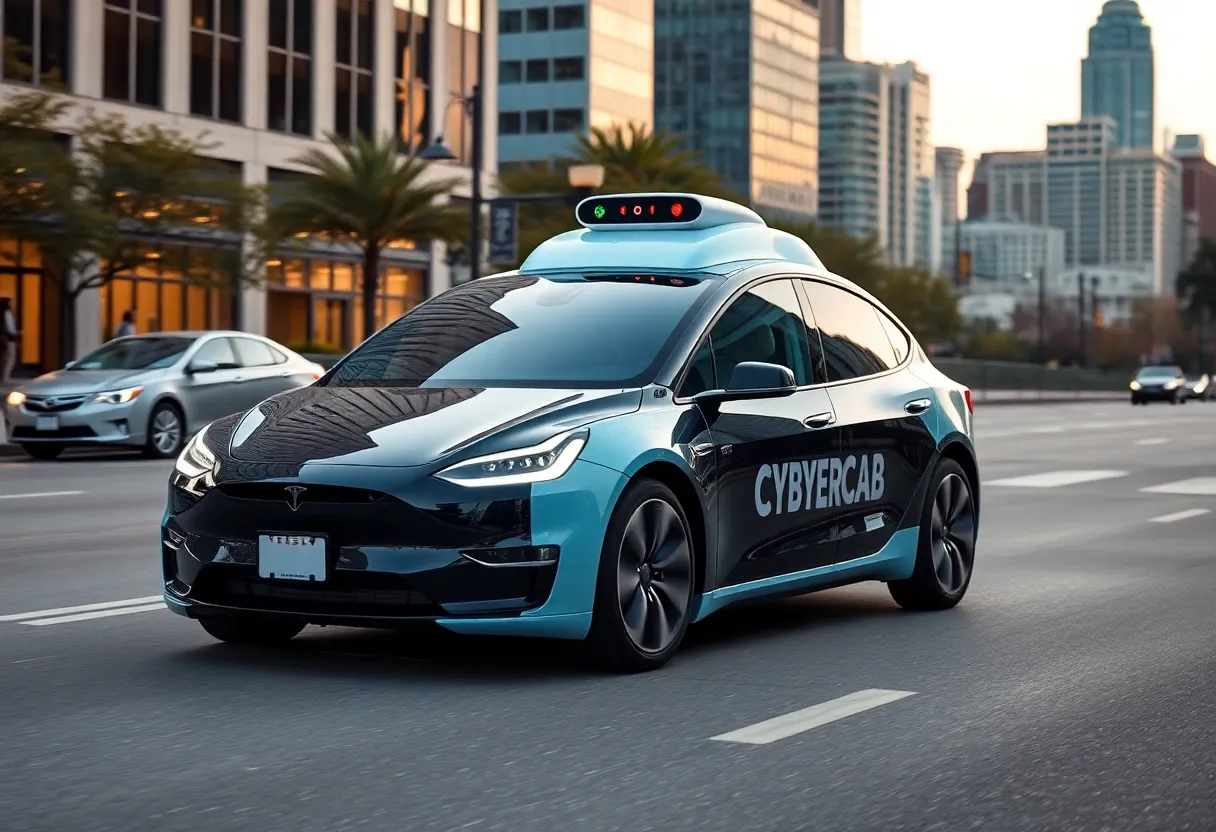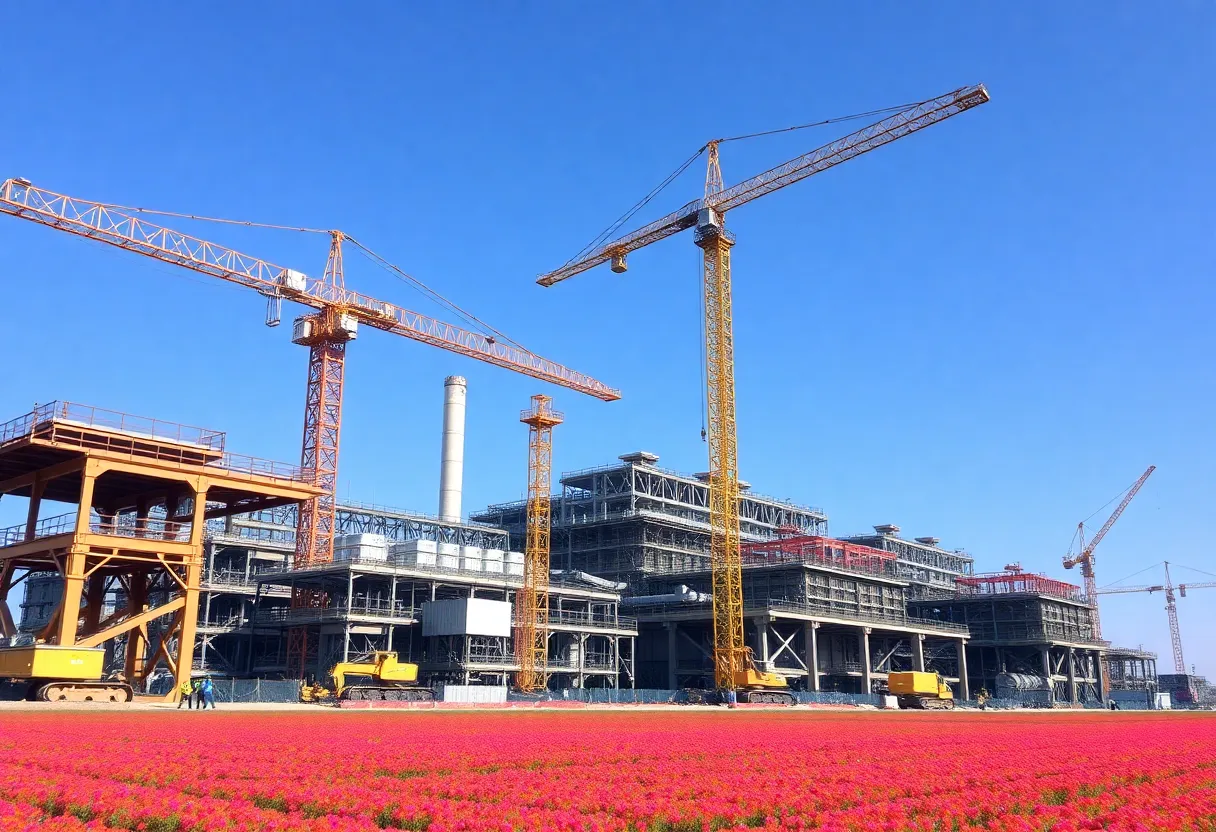News Summary
Austin is buzzing as Tesla launches a pilot program for its Cybercab, a fully autonomous robotaxi. Starting on June 22, residents can experience futuristic transportation within specific zones. The pilot features modified Model Y vehicles with safety drivers, offering affordable rides at just $4.20. With plans for production set between 2026 and 2027 and a base price under $30,000, Tesla aims to redefine urban mobility while addressing safety concerns and regulatory oversight. This initiative could expand to other major cities in the near future.
Austin, Texas – Tesla has officially launched a limited pilot program for its Cybercab Robotaxi, beginning June 22, 2025. This service is currently available only in Austin and is designed to test fully autonomous ride-sharing technology in a real-world environment.
The Cybercab is based on modified Model Y vehicles, which are equipped with safety drivers to monitor operations during the initial testing phase. Participation in this pilot program is by invitation only, and interested consumers are encouraged to stay updated via Tesla’s Robotaxi website, although pre-orders have yet to open.
Within the pilot program’s designated geofenced area, rides will cost a flat rate of $4.20. The unveiling of the Cybercab took place in October 2024, highlighting its unique design as a two-passenger electric vehicle (EV) that operates without a steering wheel. The goal for Tesla is to set a base price for the production model of the Cybercab at under $30,000, with manufacturing expected to start between 2026 and 2027.
The pilot program faces close monitoring from various regulatory bodies, including the National Highway Traffic Safety Administration (NHTSA). Concerns surrounding Tesla’s previous autonomous vehicle systems—like issues with lane drift and abrupt stops—have raised caution within the agency. The company’s decision to rely on camera-only navigation for the Cybercab has also drawn scrutiny from some industry experts.
Beyond the pilot program, Tesla is setting the groundwork for what it envisions as the Tesla Network, which would allow Model 3 and Model Y owners to generate income by sharing their self-driving vehicles with others. However, the rollout of this network is dependent on the successful launch of the Cybercab and additional regulatory approvals.
As the pilot program progresses, there are expectations for expansion into other major cities, such as Los Angeles and San Francisco, by late 2025. Tesla has clarified that while the future of their autonomous ride-share program is approaching, the Cybercab cannot be purchased at this time. The company’s goal is to have a functional network in place that not only advances transportation technology but also allows for private vehicle sharing.
In summary, Tesla’s pilot program for the Cybercab Robotaxi represents a significant step towards the future of autonomous transport. With a commitment to safety and regulatory compliance, the company aims to pave the way for wider adoption of self-driving cars while simultaneously exploring new business opportunities through shared vehicle services.
Deeper Dive: News & Info About This Topic
- Tesla Cybercab Official Page
- Tesla Blog
- Electrek: Tesla Cybercab News
- National Highway Traffic Safety Administration
- Wikipedia: Self-driving Car
- Google Search: Tesla Cybercab
- Encyclopedia Britannica: Self-driving Car
- Google News: Tesla Cybercab
- Forbes: Tesla Cybercab Launch in Austin
- BBC News: Tesla’s New Robotaxi
Author: STAFF HERE GEORGETOWN
The GEORGETOWN STAFF WRITER represents the experienced team at HEREgeorgetown.com, your go-to source for actionable local news and information in Georgetown, Williamson County, and beyond. Specializing in "news you can use," we cover essential topics like product reviews for personal and business needs, local business directories, politics, real estate trends, neighborhood insights, and state news affecting the area—with deep expertise drawn from years of dedicated reporting and strong community input, including local press releases and business updates. We deliver top reporting on high-value events such as the Red Poppy Festival, Georgetown Swirl, and Christmas Stroll. Our coverage extends to key organizations like the Georgetown Chamber of Commerce and the Downtown Georgetown Association, plus leading businesses in manufacturing and tourism that power the local economy such as local wineries and historic downtown shops. As part of the broader HERE network, including HEREaustin.com, HEREcollegestation.com, HEREdallas.com, HEREhouston.com, HEREgeorgetown.com, and HEREsanantonio.com, we provide comprehensive, credible insights into Texas's dynamic landscape.






